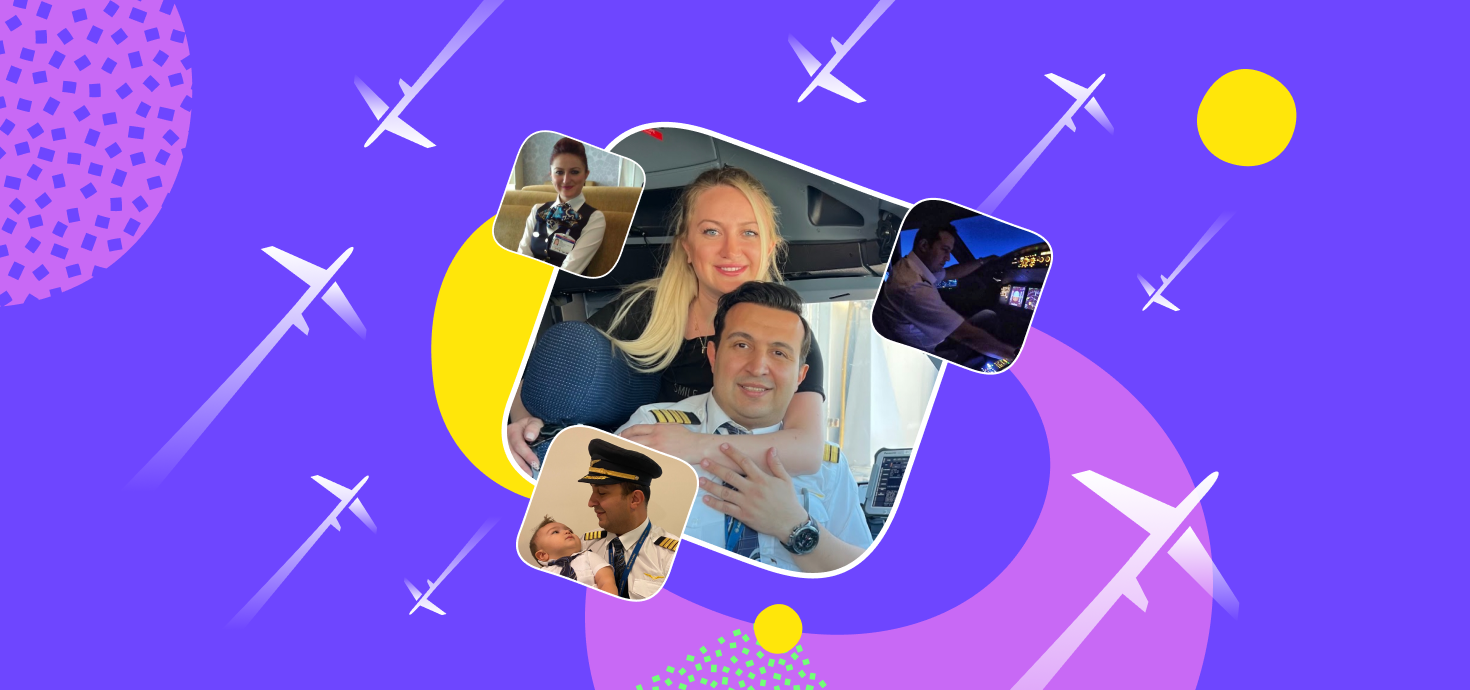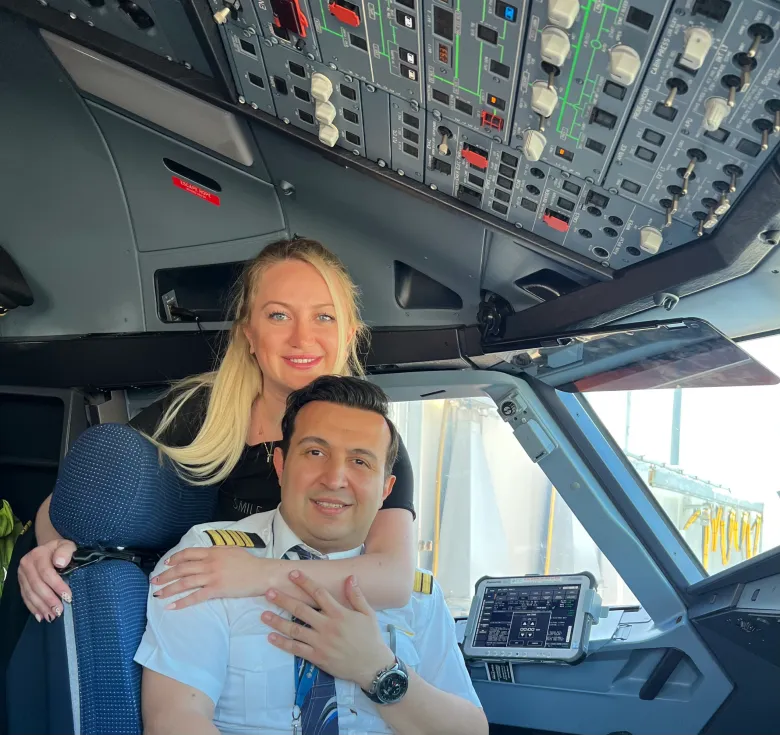A Novakid success story: an aircraft captain and a flight attendant talk about English ‘in the sky’
- Speaking in one language helps to avoid maydays
- English both over the Atlantic and at home
English is the language of professional communication in all kinds of fields, and one of them is aviation. Turgay and Naz have been flying for more than ten years, and happily talked to the Novakid Online English School editorial team about English ‘in the sky‘.
Their match was almost literally ‘made in heaven’. A pilot and a flight attendant at a major international airline, they realised that they wanted to spend more time with each other than just on transatlantic flights. And why not?
Turgay and Naz now live in Istanbul. And it is not just the ties of marriage and their work in the aviation industry that bind them. Their passion for studying foreign languages is both a shared hobby and a way for them to improve their qualifications — knowledge of English is vital in aviation.
‘The demands for an aircraft captain are extremely high,’ says Turgay. ‘It’s not enough to know aerodynamics, meteorology, navigation and other disciplines; to undergo a serious medical examination; to have a pilot’s licence and the necessary number of flying hours. You also need to provide a certificate of knowledge of aviation English.’

Speaking in one language helps to avoid maydays
English is the international language of civil aviation. Everyone in the industry working on international routes must learn the standard ICAO glossary in order to avoid misunderstandings and technical problems.
‘Wherever you fly — over China, over Japan, over the USA or some African countries… You’ve got to speak English well.’ Turgay and many other pilots know of cases in the history of aviation when knowledge of English has saved lives.
So as to understand one another quickly and, most importantly, correctly, pilots and flight attendants use a form of slang. For example, the word ‘yes’ often gets lost in the noise and crackling on the airwaves. Because of this, people say ‘affirm’ instead. Similarly, rather than the extremely short word ‘no’, people use an equivalent, ‘negative’, for clarity.
Meanwhile, Turgay hopes never to hear the word ‘mayday’ on the radio. This is the on-board signal for emergencies. Another signal, ‘pan-pan’, is used in situations that are urgent, but not as serious.
English both over the Atlantic and at home
Flight attendant Naz’s actions and knowledge of English, as a language of international communication, are also important for onboard safety. On average, flight attendants spend 90 hours a month in the air. That means dozens of hours of talking to people from different parts of the world.
In paying special attention to learning English, Naz takes great care in choosing English teachers, both for herself and for their daughter, Lara, who is a Novakid student and an ambassador for the online school in Turkey. With the family constantly crossing the Atlantic, studying without being tied to a location was convenient for them. The change to choose a native speaker teacher using a communicative approach in teaching, without translation, was also a plus. This, in fact, is how the family got to know the Novakid online school.
Born into the family of a pilot and a flight attendant, little Lara already has plenty of experience of flying. She is just 6, but she has already been to the Maldives twice and flown to Mauritius and Thailand.
‘She likes to mimic people, to imitate different accents,’ says Turgay delightedly. ‘And my father-in-law has lived in Russia for more than twenty-five years and sends his granddaughter voicemails in Russian. So I don’t think she’ll stop at one foreign language. And that’s wonderful!’
The story of Turgay and Naz’s family clearly shows the important of English in our world of borderless communication. Without an excellent knowledge of English, getting a dream job in aviation is not possible. And the same goes for most other promising fields of science, business and medicine.
Sign your child up for a free trial lesson at Novakid Online English School. Knowledge of a foreign language is their passport to a successful future.








































